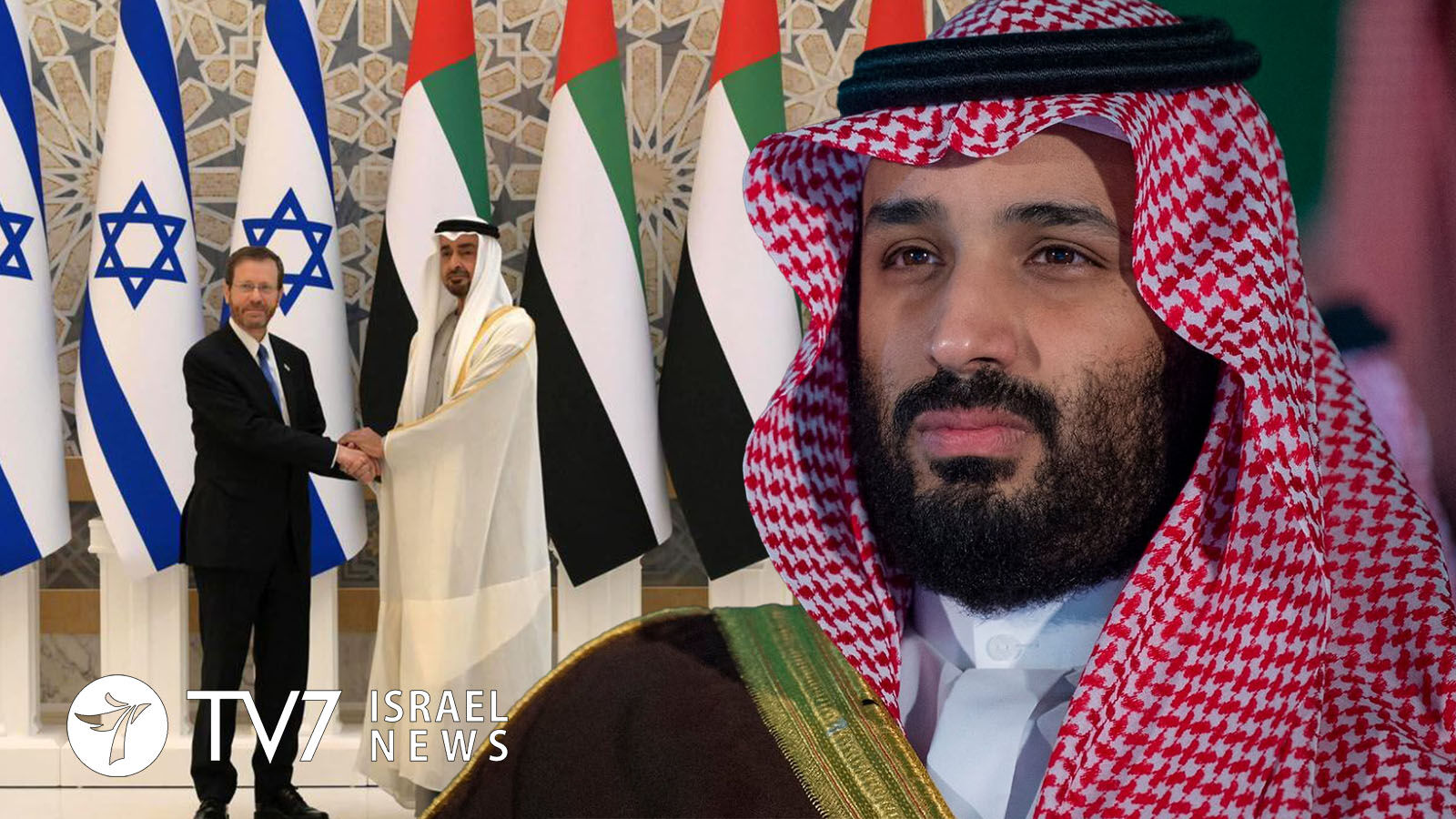The breakthrough assertion came from Saudi Crown Prince Mohammed bin Salman Al Saud.
By Erin Viner
“We do not look at Israel as an enemy but as a potential ally in various interests that we could seek to achieve together,” the Saudi state-news agency SPA cited Saudi Crown Prince Mohammed Bin Salman as saying yesterday, adding that such the Kingdom’s future ties with the Jewish State could come after it “solves its problems with the Palestinians.”
The Saudi leader made the statements during an interview with “The Atlantic” American magazine, which were later carried by state media.
While Riyadh has long conditioned any normalization with Jerusalem on resolution of the Palestinian conflict, it has made several significant gestures since its Gulf allies Bahrain and the United Arab Emirates (UAE) and two other Arab states signed the Abraham Accords with Israel in 2020.
Crown Prince Mohammad announced an historic decision to allow Israeli airlines to fly through its airspace to facilitate direct flights to the United Arab Emirates, following the personal request of his Emirati counterpart Mohammed bin Zayed Al Nahyan. Overflights have included passage by Israeli Prime Minister Naftali Bennett and other senior leaders.
Last month Israel’s military trained for the first time with forces from Saudi Arabia and Oman in the United States-led International Maritime Exercise 2022, whereas Gulf neighbors Kuwait and Qatar – who also have no formal relations with Israel – refused to participate. The drill was launched from Bahrain, which hosts the US Navy 5th Fleet’s headquarters, as well as operations for the US Central Command (CENTCOM) military coordination umbrella organization for the Middle East. Israel was included in CENTCOM this past year.
The multilateral defense drill was held amid heightened regional tensions after missile attacks on the UAE by the Houthis, including a foiled strike aimed at a base hosting US forces.
The Sunni-Muslim Kingdom shares Israel’s concerns over Shi’ite-Iran’s nuclear program and aggressive regional behavior, and is currently leading a coalition battling the Islamic Republic-backed Houthi rebel insurgency in Yemen.
Prince Mohammad said his country is committed to conducting “detailed talks” to resolve major disputes with Tehran. So far, four rounds of negotiations with Iran have resulted in a “lack of substantive progress,” Saudi Foreign Minister Prince Faisal bin Farhan Al Saud said in February, while calling on the Islamic Republic to alter its behavior.
Turning to the negotiations in Vienna between Iran and world powers to revive the 2015 Joint Comprehensive Plan of Action (JCPOA), Prince Mohammed stressed it is critical that the pact be strengthened.
“We do not want to see a weak nuclear deal because the result will be the same in the end,” he said.
